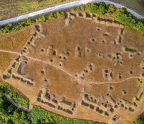A NEW HOPE

As cancers go, glioblastoma is one of the worst types you can be diagnosed with. The aggressive tumours emerge rapidly from astrocytes, the star-shaped cells that make up much of your brain’s mass.
Some tumours spread out like tentacles, hitchhiking on neural pathways and often affecting speech and coordination as they advance. The way they embed themselves in the brain makes surgery to remove them a dangerous undertaking.
Only about five out of every 100 people with glioblastoma survive for five years or more. The average life expectancy for a patient who is treated for the illness, through surgery, radiotherapy, chemotherapy, or often a mix of the three, is just 14.6 months following diagnosis.
While an estimated 200 people are diagnosed with high-grade brain cancers such as glioblastoma in New Zealand each year, scientists have few if any promising options on the table to deal with it.
“Glioblastoma is a horrible cancer,” says Dr Swee Tan, the soft-spoken plastic surgeon, researcher and executive director of the Gillies McIndoe Research Institute.
Above a blood bank in Newtown, Wellington’s hospital district, Tan and his small research team use philanthropic grants to conduct studies into cancer treatments. His focus is on the worst of the worst cancers, the ones for which there is no cure.
“Glioblastoma is a horrible cancer. There’s nothing really on the horizon that can help patients.”
“There’s nothing
You’re reading a preview, subscribe to read more.
Start your free 30 days





